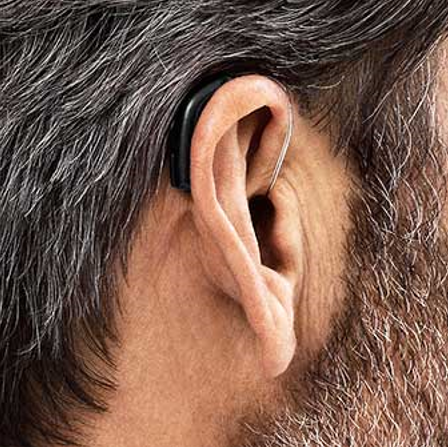Identifying Hearing Loss
It can sometimes be hard to admit you might have hearing loss, but it’s very common among people of all ages, and it can be very easy to treat. Some of the symptoms are regularly asking people to repeat themselves, turning up the TV too loud (so that family members keep telling you to turn it down), or noticing that other people seem to mumble when they speak. You might also have ringing in your ears (tinnitus).
Ask yourself the following questions, and if you answer yes to one or more, then it may be time to make an appointment.
- Do you hear, but not understand?
- Do you have a hard time identifying speech in noisy evironments?
- Do you often feel tired or stressed out during conversations?
- Do you find yourself avoiding social situations?
- Do you find yourself frequently denying hearing problems?
Causes of Hearing Loss
Contrary to what you may believe, hearing loss isn’t just caused by getting older. Hearing loss occurs in all types of people, regardless of age. There are many different reasons why a person might experience hearing loss, but two of the most common are infections and exposure to loud noise. If you work in a loud environment, have attended loud concerts without hearing protection, or have fired a gun, your hearing may be damaged, even if it’s been a long time since those events. That’s why it’s important to protect your hearing any time you are exposed to loud noise.

Types of Hearing Loss (& How They’re Treated)
There are three types of hearing loss. Conductive hearing loss occurs when a patient has a lot of wax buildup, ear infections, drainage in the ear, or another sort of obstruction. If we suspect conductive hearing loss, we’ll refer you to an Ear-Nose-Throat (ENT) doctor to figure out what you need and get medical clearance for hearing aids in case the ENT can’t fix the problem.
Sensorineural hearing loss means the ear canal is clear, everything looks good, but the cochlear nerve itself is damaged. In that case, hearing aids are the only solution, and we won’t need to refer you to an ENT; we’ll just work to help you find the right hearing aids for you.
The third is mixed hearing loss, which refers to a combination of the two. In that case, we refer you to an ENT for treatment and medical clearance for hearing aids. Most likely this will involve the removal of ear wax to eliminate some of the problem and then hearing aids to solve the rest.
Frequently Asked Questions
The decision to try hearing aids can be a daunting one for some; hopefully our answers to common questions below will help to show that there’s really nothing to be afraid of.
(click each question to learn more)
- Will my hearing aids be obvious to other people?
- Do hearing aids work in loud, crowded environments?
- What if I try hearing aids and I don’t like them?
- Why do I need two hearing aids instead of one?
- How long to hearing aids last?
- How often do I need to come in for a check-up?

- Will my hearing aids be obvious to other people?
- If you imagine that hearing aids are all large and bulky like they used to be, don’t worry — modern hearing aids are actually quite small and discreet while being more powerful than ever. Some models of hearing aids are virtually invisible. The signs of hearing loss — such as constantly asking, ‘what?’ and not responding to people when they speak to you – are actually more obvious to others than your hearing aid would be.

Supporting a Friend or Family Member
(Who is Getting Hearing Aids for the First Time)
Come with your loved one to the first hearing consultation! We like to speak with the whole family about how to take care of the hearing aids, how to use them, and what to expect if problems occur. We’ll counsel you and your loved one in cleaning, maintenance, inserting the hearing aids properly, and adjusting the volume. That way you’ll be equipped to help if your loved one runs into any difficulties.
Remember to give your loved one the benefit of the doubt that they’re trying hard to get used to the hearing aids. Remember that things won’t improve magically and it will take time. You may have been used to talking in a loud voice, but once your loved one has hearing aids, speak to them at a normal volume. The hearing aids are going to give them the amplification they need to hear closer to a normal level. That means no more shouting in the house!
